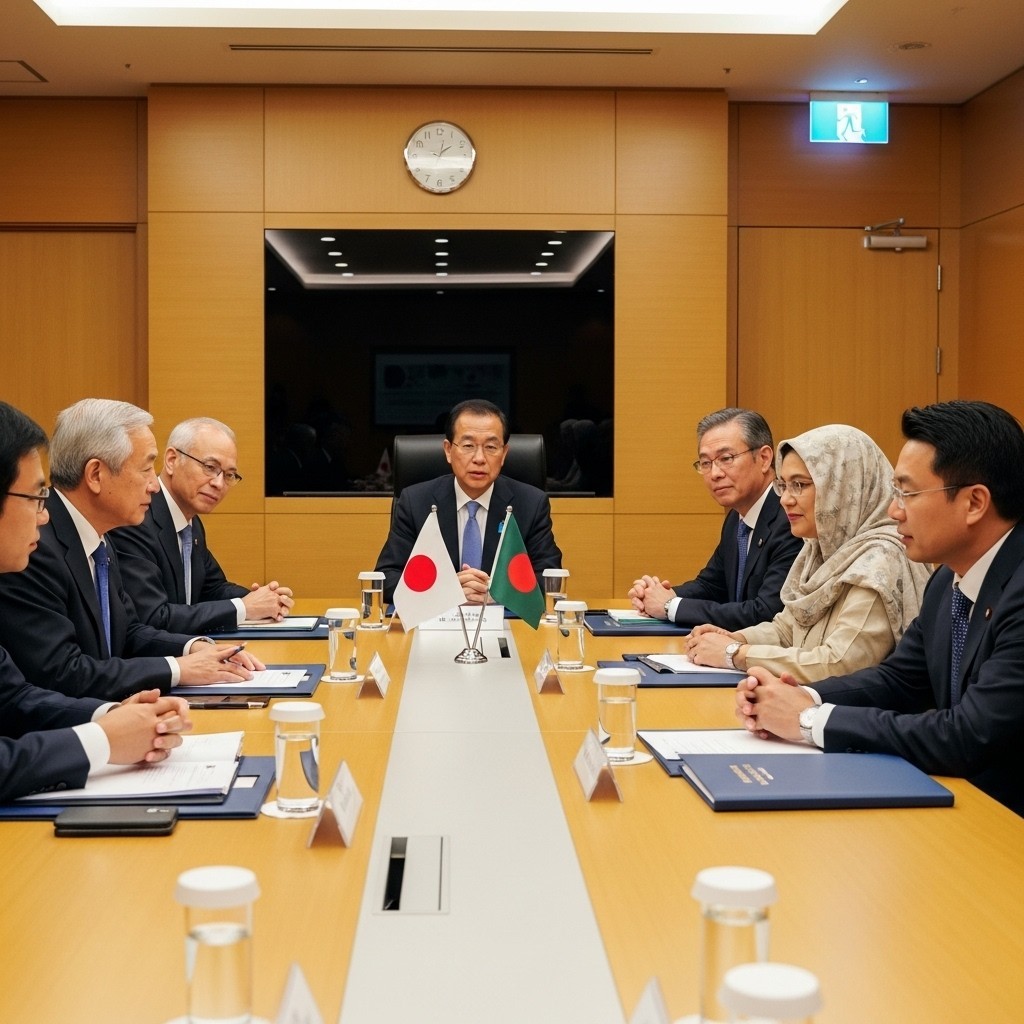A Japanese business delegation recently met with the president of the Bangladesh Garment Manufacturers and Exporters Association (BGMEA) to explore new opportunities for strengthening bilateral trade. The meeting underscored growing interest from Japan in expanding collaboration with Bangladesh’s ready-made garment (RMG) sector. During the discussion, both sides emphasized the importance of building stronger supply chain connections, enhancing business relationships, and boosting mutual trade volumes. The BGMEA president highlighted Bangladesh’s achievements in sustainable garment production, workforce development, and growing capacity in value-added apparel manufacturing. The Japanese delegation included representatives from trading companies, apparel buyers, and industry consultants. They expressed interest in sourcing more apparel products from Bangladesh, particularly those made with eco-friendly materials and compliant with international standards. The group also explored potential joint ventures and investment opportunities in textile machinery, innovation, and skills development. Bangladesh’s RMG sector remains the largest contributor to its export earnings, with Japan being a steadily growing market. In recent years, Bangladeshi garments have gained popularity among Japanese consumers for their competitive pricing, reliable quality, and timely delivery. Strengthening trade ties with Japan could open new growth channels for exporters and reduce dependency on traditional markets. The meeting also highlighted the importance of compliance and transparency in global apparel sourcing. The BGMEA reaffirmed its commitment to workplace safety, labor rights, and environmental sustainability—areas where Japanese buyers place significant value. Collaborative programs in these areas were discussed as ways to deepen trust and long-term partnership. In addition to trade, both parties expressed interest in technology sharing and innovation. Japan’s advanced textile technology, if introduced through partnerships or knowledge exchange, could help Bangladesh’s factories become more efficient, automated, and environmentally responsible. The engagement reflects Bangladesh’s growing global reputation as a reliable sourcing hub. As buyers diversify their supply bases, such high-level meetings help position Bangladesh favorably in the international apparel market. They also support the country’s long-term goals of moving up the value chain and becoming a center for sustainable and ethical fashion manufacturing. This exchange signals not just increased orders, but a deeper alignment of business values between the two countries. With continued dialogue and cooperation, Bangladesh and Japan have the opportunity to build a trade relationship rooted in mutual growth, innovation, and shared standards.
40


